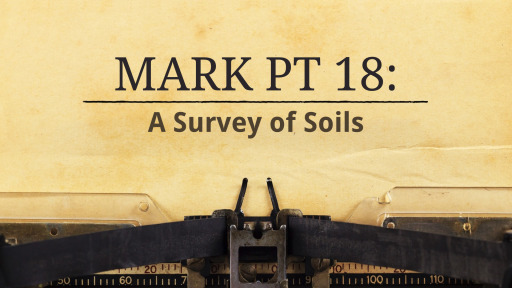Mark Pt 18: A Survey of Soils

1. The Location of Parabolic Teaching
Evidently, the Lord had been in someone’s house when His mother and brothers arrived. Now, having put them in their place, He came out of the house and went down to the shore of the lake. He borrowed a boat and made it His pulpit.
We can picture His sitting in that little vessel with His face toward the shore. Before Him stretched the multitudes, spread out over the hillside and eager to listen to His words.
Many years ago, when I was a soldier in the British army in Palestine, I went on a chaplain-conducted tour of Galilee. I remember the padre telling us all to sit down on the slopes above the lake. There was a busload of us, and we were seated at least fifty yards from the lake itself.
The chaplain took out a pocket Testament and opened it to this chapter. He handed it to me and told me to go down to the lake, turn around at the water’s edge, face the sitting soldiers, and read aloud the first nine verses. He told me to read in a conversational tone of voice and not to raise my voice at all. I did as I was instructed. The still waters of the lake behind me acted as a sounding board. Every syllable was caught up and amplified and heard clearly by the men sitting on the hillside. The whole area turned out to be a natural amphitheater, and the acoustics were remarkable. A microphone was unnecessary. The lake was its own amplifier. The Lord knew all about the acoustical qualities of the area and took advantage of them to address vast crowds with ease.
